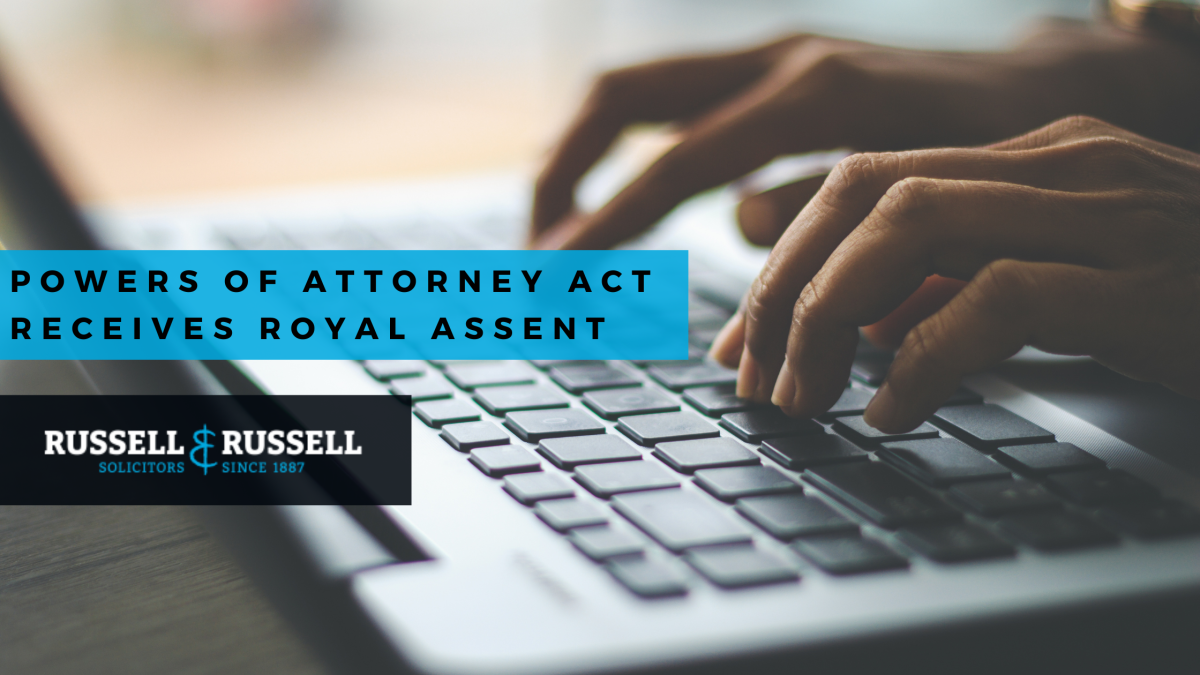23/10/2023

The Powers of Attorney Bill received Royal Assent at the end of September and is likely to come into force in the next few months.
The Act hopes to make the process of making a Lasting Power of Attorney (LPA) quicker, safer and more efficient, by enabling an LPA to be made entirely online, while also improving the paper alternative.
In this blog, our specialist LPA Solicitors look at the provisions of the new Act and consider whether it will meet its objectives to modernise the way LPAs are made.
What is a Lasting Power of Attorney (LPA)?
An LPA is a legal document that someone can create to name people that they trust to make decisions or manage their affairs, including about their care and financial arrangements, if they are physically or mentally unable to do so themselves in the future.
There are two main types of LPA:
- Property and financial affairs. This deals with decisions relating to finances and property, for example, selling your house, paying your bills, accessing your bank accounts and collecting pensions and other benefits.
- Health and welfare. A health and welfare LPA involves decisions about your medical care, including where you should live, and any life-saving or life-sustaining treatment.
Individuals can choose to make one or to make both.
Who can make an LPA?
Anyone over the age of 18 with mental capacity can make an LPA.
LPAs help individuals of all ages and from all backgrounds safeguard their futures by putting in place provisions for what happens if they suffer from an illness or accident that means they lose mental capacity.
What is capacity?
Mental capacity means the ability to understand information and make decisions about your life.
Lacking capacity means that you are unable to make decisions. Capacity can be lost on a short-term basis, such as if you are unconscious or because of some mental health problems, or permanently, for example through an accident or if you are suffering from dementia.
How do you make an LPA?
To create an LPA, you need to complete the relevant form and register it with the Office of the Public Guardian (OPG).
Currently, forms must be printed off and signed before being sent to the OPG for registration.
The forms can be complicated, and it is important that you take care when filling in the documentation. Mistakes such as signing in the wrong order, missing and mixed pages, and unlawful requests are common, and errors can prove time consuming and costly.
An experienced solicitor can help ensure the forms are completed properly. For advice on LPAs, please contact Russell & Russell on 0800 103 2600 or make an enquiry online.
What changes will be introduced by the Powers of Attorney Act?
The Powers of Attorney Act:
- Creates a digital channel to make an LPA while also improving the paper option.
- Ensures only the donor can apply to register the LPA.
- Introduces new identity verification requirements for an application to register an LPA to be accepted.
- Automates many checks that should reduce the risk of errors in the paperwork.
- Requires the OPG to notify the parties when an application to register an LPA is complete, and the registration process starts.
- Enables the OPG to operate a triage system for certain types of objections.
- Widens the people who can object to an LPA.
- Provides for new forms of evidence of the LPA to be created and accepted.
- Allows Chartered Legal Executives to certify copies of LPAs.
Are there any concerns about the new Act?
While the new Powers of Attorney Act is intended to make the process for making an LPA easier and more efficient, some concerns remain. These include that:
- The digital system will be complicated and difficult to use.
- Digitalising the process will increase the potential for fraud.
- An online system will alienate the most vulnerable.
- There is currently a lack of detail on the proposed ID verification system.
The new system is currently being developed by the OPG and more information will be published in the next few months.
Lasting Power of Attorney Solicitors
Consulting a solicitor is the best way to make sure a Lasting Power of Attorney is properly set up and registered, and that it is in the best interests of the donor.
At Russell & Russell Solicitors, our specialist private client team can advise on all matters concerning Lasting Powers of Attorney and Living Wills.
We can also provide legal advice and guidance on the Court of Protection and have the knowledge and expertise to advise on the Mental Capacity Act 2005.
For more information on how we can help you with your Lasting Power of Attorney or any other Wills and Probate enquiries, click here, call us on 0800 103 2600 or make an online enquiry.
Please note that this article is meant as general guidance and not intended as legal or professional advice. Updates to the law may have changed since this article was published.
Please note that this article is meant as general guidance and not intended as legal or professional advice. Updates to the law may have changed since this article was published.

